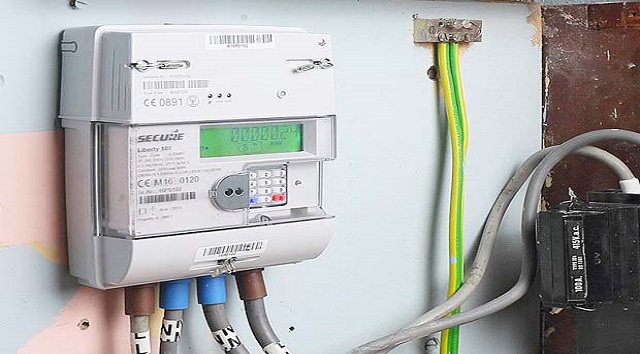General News
Buhari Queries Ministry over Diversion $1Bn Rail Project Loan

President Muhammed Buhari has asked the Ministry of Finance to account for the foreign loans aimed at the rail projects but used for other purposes.
The amount involved was part of the loan of $1.005 billion from the Chinese Exim Bank, obtained for the construction of a standard gauge rail line linking Lagos to Kano which project was started under former President Goodluck Jonathan.
President Buhari spoke at the end of a report presentation on the Ministry of Transport by Alhaji Mohammed Bashar, permanent secretary, at the Presidential Villa, Abuja.
He said that it was disappointing to discover that foreign loans obtained in line with signed agreements were moved from one project to another, and doubted if such diversion was done following due process.
“I hope that due process was followed before such diversions were carried out. Taking money from one project to another has to be done properly,” the President said.
His reaction was against the backdrop of specific instance of the diversion of a substantial part of the loan of $1.005 billion from the Chinese Exim Bank, obtained for the construction of a standard gauge rail line linking Lagos to Kano which was moved elsewhere.
The permanent secretary had disclosed to the President that only $400 million of that loan remained with the Ministry of Finance.
The President regretted that government had, over the years, failed to meet its counterpart funding obligation on some projects, leading to such projects being left uncompleted or abandoned.
In addition, he stressed that there was a clear need to streamline, harmonize, and prioritize on-going projects in the transportation sector.
The permanent secretary had also briefed the President on other challenges facing the transport and maritime sectors, such as encroachment on railway land, lack of security on inland waterways and the confused nature of agreements between the Nigerian Ports Authority and ports concessionaires.
According to him, while speaking with State House Correspondents shortly after their briefing to the President, “Basically, what we did was to present to the President the various programmes and projects and the reform efforts we have been undertaking in the last couple of years; the stages of the various projects, especially the railway rehabilitation programme and development in our seaports.
“And also some of the regulatory issues that we sought are due for review and attention.
“The President quite appreciated a lot of what has been achieved so far and he has indicated his willingness to continue with a lot of projects and programmes already on ground.
“And he has expressed his support, especially when we start talking about the capacity building for individual operators in the country. He is really appreciative of the entrepreneur initiatives of Nigerians and indicated that government will continue to give its full support.”
On specific directive from the president to the Ministry of Transport, the permanent secretary said,“There are issues that he thinks we should pay a lot of attention, especially in the execution of agreements that we have entered into.
“He emphasized on the need to adhere strictly to the terms of agreements and we are going to abide by that.
“Basically, those agreements are relating to the projects we entered into with the construction of railway, standard gauge lines and rehabilitation programmes.”
General News
CBN, NCC Propose Instant Refunds for Failed Airtime, Data

Central Bank of Nigeria (CBN)and the Nigerian Communications Commission (NCC) have proposed that customers must receive refunds within 30 seconds for failed airtime and data purchases to curb persistent billing complaints in the telecommunications sector.

This was indicated in the Exposure Draft of the Joint CBN–NCC Framework for Resolution of Failed Airtime and Data Purchase Transactions, which was published on the website of the CBN on Monday.
The landmark exposure draft, dated 5 February 2026, seeks to “institutionalise clear accountability” and establish a “coordinated approach to consumer redress” across the financial and telecommunications sectors.
The most significant shift in the proposed framework is the introduction of standardised, automated timelines for resolving failed transactions.
Currently, Nigerians often face long delays when airtime purchases fail at the bank, aggregator, or Mobile Network Operator level.
To solve this, the regulators have proposed a 30-second window for automated reversals. Section 6.0 (ii) of the draft exposure, which dwelt on failed transactions, especially as it relates to unfulfilled airtime/data delivery, proposes a time to refund the purchaser of 30 seconds “if the transaction failed at the bank level… Failed transaction delivery from NCC Authorised Licensees… Failed transaction delivery from MNO to the NCC Authorised Licensee.”
The draft emphasised that stakeholders must “automate reversal processes across all stakeholders” to ensure that refunds require no human intervention from the customer.
The draft exposure also stated that “all parties involved in airtime and data transactions shall take the following actions to ease usage and facilitate consumer satisfaction: a. Stakeholders must immediately connect ONLY to relevant authorised licensees of the NCC and CBN. b. MNOs and banks must only connect to NCC Authorised Licensees/MNO digital channel partners for airtime and data vending… Notifications of failure create final settlement obligations between MNO and NCC-authorised licensees… The NCC and CBN will audit stakeholder compliance jointly or individually at quarterly or other intervals as may be determined.”
From a business and oversight perspective, the regulators are proposing a Central Monitoring Dashboard to be hosted jointly by the CBN and NCC, which will track reversals, Service Level Agreement breaches, and customer complaints in real-time.
“There shall be a Central Monitoring Dashboard hosted by CBN/NCC for tracking reversals, SLA breaches, and customer complaints. This will facilitate the establishment of a real-time national ‘Failed Transactions Dashboard’ with a uniform error code with end-to-end visibility across the value chain’, read the draft exposure.
This is designed to eliminate the “unclear ownership of liability” that often occurs when banks and telcos blame each other for failed recharges. To support this, banks and MNOs will be required to maintain and share daily reports of successful and failed cases.
The proposed framework also addresses the common problem of “lost” money when customers recharge ported phone numbers. The draft mandates that MNOs must validate a phone number against the ported number database before processing any recharge. If the system identifies a number as ported out or invalid, it must “proactively stop recharges” and send a failure code back to the bank to ensure the customer is not debited.
For erroneous recharges sent to the wrong person, the framework sets clear protocols: below N20,000, MNOs will request the recipient’s consent before a reversal, and when it is above N20,000, an affidavit of indemnity or notarised letter is required to process the recovery.
The CBN and NCC in the exposure draft signalled they will take a firm stance on compliance. Both agencies will conduct joint quarterly audits of all stakeholders, including banks, payment service providers, and MNOs, to verify compliance with the new rules. The regulators have warned they will “impose penalties for any breach” of the framework’s provisions.
Banks and other financial institutions have until 10 February 2026 to submit their inputs on the draft before it is finalised. Once implemented, the framework is expected to significantly restore “subscriber trust” in Nigeria’s digital financial ecosystem.
General News
FG Launches the Happy Woman App Platform

Federal government has unveiled a new digital platform to connect millions of women to finance, skills training, and market opportunities, in what officials call the country’s largest technology-driven women’s inclusion initiative to date.

The Happy Woman App Platform, which was unveiled at the Presidential Villa in Abuja, would serve as a single interface for women to access funding facilities, business development support, governmental initiatives, and critical services.
The digital drive comes as Nigeria grapples with expanding gender gaps in financial access, with women much less likely than males to maintain bank accounts or obtain formal credit, limiting their capacity to grow informal enterprises they primarily run.
Yet women remain central to the economy, accounting for a large share of micro and small enterprises that contribute nearly half of the country’s GDP.
According to the Social Institutions and Gender Index, only about 35 percent of Nigerian women have a bank account at a financial institution, compared with 55 percent of men, underscoring the depth of persistent financial exclusion and the urgency of targeted interventions.
The launch coincided with the expansion of the Nigeria for Women Programme, which the administration now plans to scale nationwide to reach 25 million women.
President Bola Tinubu, represented by vice president Kashim Shettima, said the scale-up is central to Nigeria’s economic growth strategy.
“A nation that relegates its women is a nation bound for implosion,” he said, adding that women must be placed “at the centre of national planning and productivity.”
The expanded programme builds on a pilot phase in six states that reached over one million women, many organised into Women Affinity Groups to access grants, savings schemes and livelihood support.
The government says the new app will streamline beneficiary registration, payments and training, reducing leakages and improving delivery.
General News
Indigenous Firm Deploys 400,000 Smart Electricity Meters in 2025

MOJEC International Limited has revealed that it deployed over 400,000 smart meters nationwide in 2025, representing a significant year-on-year growth for the indigenous smart meter manufacturer.

This performance reflected a 33.3 percent increase over the 300,000 meters deployed in 2024, highlighting the scale and acceleration of MOJEC’s metering operations.
Chantelle Abdul, group managing director, attributed the sustained impact to deliberate investments in infrastructure, people, and technology.
“MOJEC operates two state-of-the-art meter production facilities with a combined installed capacity of up to five million meters annually. This scale enables us not just to meet current demand, but to support Nigeria’s long-term metering and energy efficiency goals,” she said.
She further noted that MOJEC’s expansive installer ecosystem, comprising over 5,000 trained professionals nationwide, remains a critical enabler of its delivery advantage, ensuring speed, quality, and compliance across diverse terrains and markets.
The company stated that the deployment surge reflected growing confidence by Distribution Companies (DisCos) and sector stakeholders in MOJEC’s technical capacity, delivery speed, and end-to-end metering solutions.
According to Monday Ubogu, MOJEC’s head of installation, the scale and consistency of delivery set the company apart.
“Within the first three quarters of the year, MOJEC completed about 300,000 installations, accounting for roughly 40 percent of total installations nationwide during that period.
“The momentum continued into the final quarter with an additional 150,000 meters deployed, highlighting our operational depth and nationwide reach,” he said.
Ubogu added that MOJEC’s performance builds on decades of sector engagement, spanning key national metering initiatives including CAPMI, MAF, Vendor Financing, MAP Phases I & II, and NMMP 0, with the company having deployed nearly four million meters since the privatisation of NESI.
According to the company, a substantial portion of the deployment was driven by MOJEC Meter Asset Management Company (M3AC), the Group’s asset management subsidiary, which accounted for about 350,000 installations.

 E-Financial3 days ago
E-Financial3 days agoAlawuba Advocates Security, Bankable Projects, Infrastructure Development to Promote South-East Vision

 Telecom2 days ago
Telecom2 days agoNCC Committed to Regional Digital Integration – Maida

 General News2 days ago
General News2 days agoIndigenous Firm Deploys 400,000 Smart Electricity Meters in 2025

 E-Financial2 days ago
E-Financial2 days agoCBN Expresses Concern Over Foreign Investments in Nigeria Fintechs

 E-Financial2 days ago
E-Financial2 days agoBOI Secures CBN Nod for Sharia Banking, Unlocks Ethical Funding Boom

 E-Financial2 days ago
E-Financial2 days agoUBA’s Easy and Instant Account Opening Thrills Returnee

 Telecom2 days ago
Telecom2 days agoITU Top Director Visits NITDA, Boosts Nigeria’s Digital Literacy Push

 News2 days ago
News2 days agoEFInA Unveils Research Fellowship Programme to Deepen Financial Inclusion Impact















